This is our fortnightly roundup of good news from around the world. If you'd like to get this in your inbox, you can subscribe for free below.
Get good news in your inboxGood news you probably didn't hear about
Global electricity access rose markedly between 2010 and 2020, from 83% to 91% of the world's population, with the number of unserved falling from 1.2 billion to 733 million during that period. The pace of growth was faster than in previous decades, although it did slow between 2018 and 2020, because of the difficulty in reaching unserved populations and the impact of COVID-19. UN
Botswana may become the first African country to eliminate mother-to-child HIV transmission after a ‘ground-breaking’ drop in rates from 40% in 1999 to 1% in 2021. It’s astonishing progress for the county that used to have the highest rate of HIV in the world and is thanks to an increase in testing rates and access to antiretroviral therapy. Guardian
When a newborn baby tests HIV negative, we’re very much part of this victory against the virus. We celebrate the news with the mother and are celebrated by the community for the role we do.
Dr Kaite Mashini, Central District’s Health Team, Botswana
After 45 years of public health efforts, Niger is on the verge of becoming the first country in Africa to end onchocerciasis, also known as river blindness. The fight against the disease gained momentum in the 1990s thanks to mass administration of the drug Mectizan. Gates Foundation
Indonesia is one of the most spectacular development successes of the last two decades. With 274 million people, it's the fourth largest country on Earth - yet between 2000 and 2021, reduced the share of people living below the national poverty line from 20% to 10% - lifting around 25 million out of poverty.
Despite the financial turbulence of the past year, The World Bank's Global Findex Database 2021 has offered some positive news on the growth of account ownership and uptake of financial services. Some highlights:
- Account ownership in developing economies increased from 63% to 71%.
- The gender gap in account ownership narrowed for the first time in the last decade, decreasing in developing countries by 3%.
- The pandemic accelerated digital adoption of financial services with around 720 million adults in developing economies making a digital merchant payment for the first time.
- Around half of adults in developing economies can now access emergency money within 30 days if faced with an unexpected expense.
A record 181 women (one third of all candidates) are running in Japan’s upper house election this weekend, a big step up from 77 in 2019. The increase is attributed to a commitment by parties ensure more gender equality after the country ranked 163rd out of 190 countries for women in politics. Guardian
A top court in Slovenia has ruled that imposing bans on same-sex couples getting married and adopting children is unconstitutional and has ordered its parliament to amend the law within six months. The ruling makes Slovenia the 18th European country and 31st country worldwide to legalize same-sex marriage. Gay Times
Sierra Leone is on the cusp of decriminalizing abortion after the government's unanimous backing of the 'risk-free motherhood' bill. The provisions of the bill also cover other aspects of maternal health, expanding access to contraceptives, post-abortion care and other reproductive health services. Guardian
At a time in the world when sexual and reproductive health rights for the women are either being overturned or threatened, we are proud that Sierra Leone can once again lead with progressive reform. I want it to be a norm that as an African man, an African leader, I can and should speak freely and publicly about menstruation, because there is no shame in menstruation.
President Julius Maada Bio
It's not just Sierra Leone. Abortion legislation across Africa is slowly becoming more progressive, with Tunisia, South Africa, Cape Verde, Mozambique, and Benin all legalising abortions. The city of Lagos, home to 15 million people, is also pioneering plans to offer them in public hospitals. DW
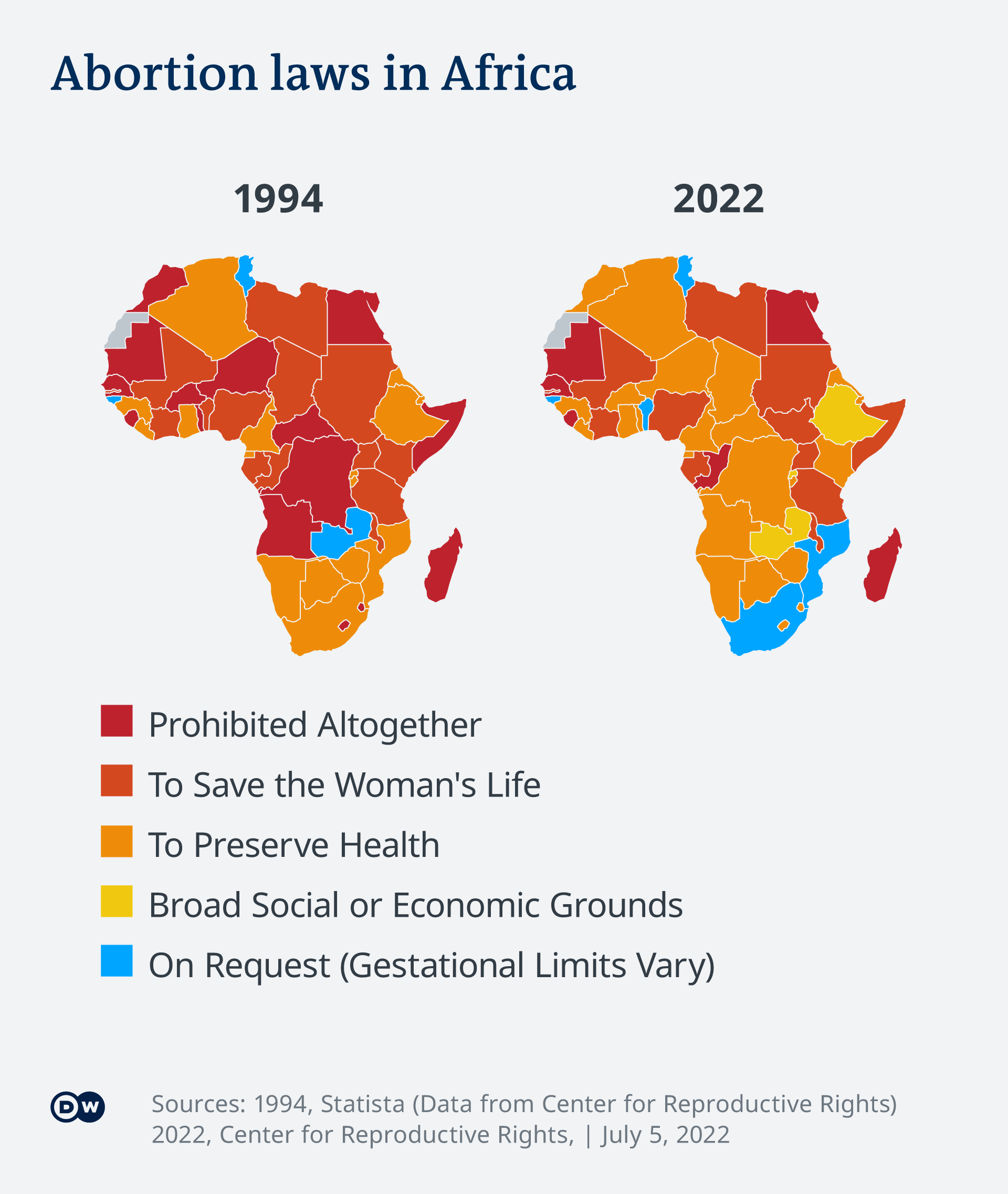
A landmark ruling in Kenya will see the Indigenous Ogiek people paid reparations for decades of illegal evictions from their ancestral land in the Mau Forest. It’s the first time a court has ruled in favour of both material and moral damages and the decision could set a precedent for other Indigenous peoples in East Africa. Grist
Argentina has approved a groundbreaking law to reduce discrimination against people living with HIV, viral hepatitis, TB and other sexually transmitted infections. The legislation prohibits mandatory testing for HIV and STIs by employers or educational institutions. Mirage News
Doctors in the UK say we could see a cure for haemophilia B happen with the next few years, after a successful trial of a 'transformational' therapy consisting of an engineered virus that corrects the genetic defect that leaves people's blood struggling to clot. 9 out of 10 patients who took part in the trial no longer needed clotting injections. BBC
California - the fifth largest economy on the planet - just announced it's going to manufacture its own insulin. This will make it significantly more affordable for millions of residents of the state, and push down prices nationwide. More than eight million Americans with diabetes depend on the drug. CNN
Pfizer is extending its donation of the antibiotic Zithromax for trachoma until 2030. The company’s 23-year commitment has played a crucial role in the prevention of the world's most common eye disease, with a 91% decrease in cases in the past decade. WHO
A simple, but important observation. On almost every single social issue, from womens rights to racial tolerance, minority rights, immigration, religion, gun ownership and abortion, Americans are more tolerant today than they have been at any point in their history. It's just that their governing and legal institutions have been captured by a fringe minority who are not. Globe & Mail
Saving the world is cheaper than ruining it
A new study has shown the global oil and gas industry has extracted $2.8 billion in profits from humanity every day for the last 50 years. That's an insane amount of money - you can buy every politician in the world with that. The recent collapse of Build Back Better in the US is just the latest example of how the industry continues to wield that kind of power.
So what comes next? Well, if this part of the newsletter has a consistent message, it's that when it comes to solving climate change, politics is overrated, and technology and economics are underrated. As Noah Smith points out, climate activists keep on insisting we can't rely on technology to save us, even as hard-working technologists continue to save us.
Case in point: the Supreme Court's ruling on the EPA's ability to regulate emissions has come too late for Joe Manchin and friends. S&P, a financial services firm, estimates 145 GW of coal capacity will retire in the US this decade, with coal’s share falling from the current 22% to 5% in 2030. Thanks technology. EE News
And despite supply chain challenges, the US energy transition continues to accelerate: renewables have generated at least 25% of electricity on 59 days this year – versus just three times in 2019. As of the 15th June, wind, solar and hydro have generated 23% of US electricity, topping both coal and nuclear. IEEFA
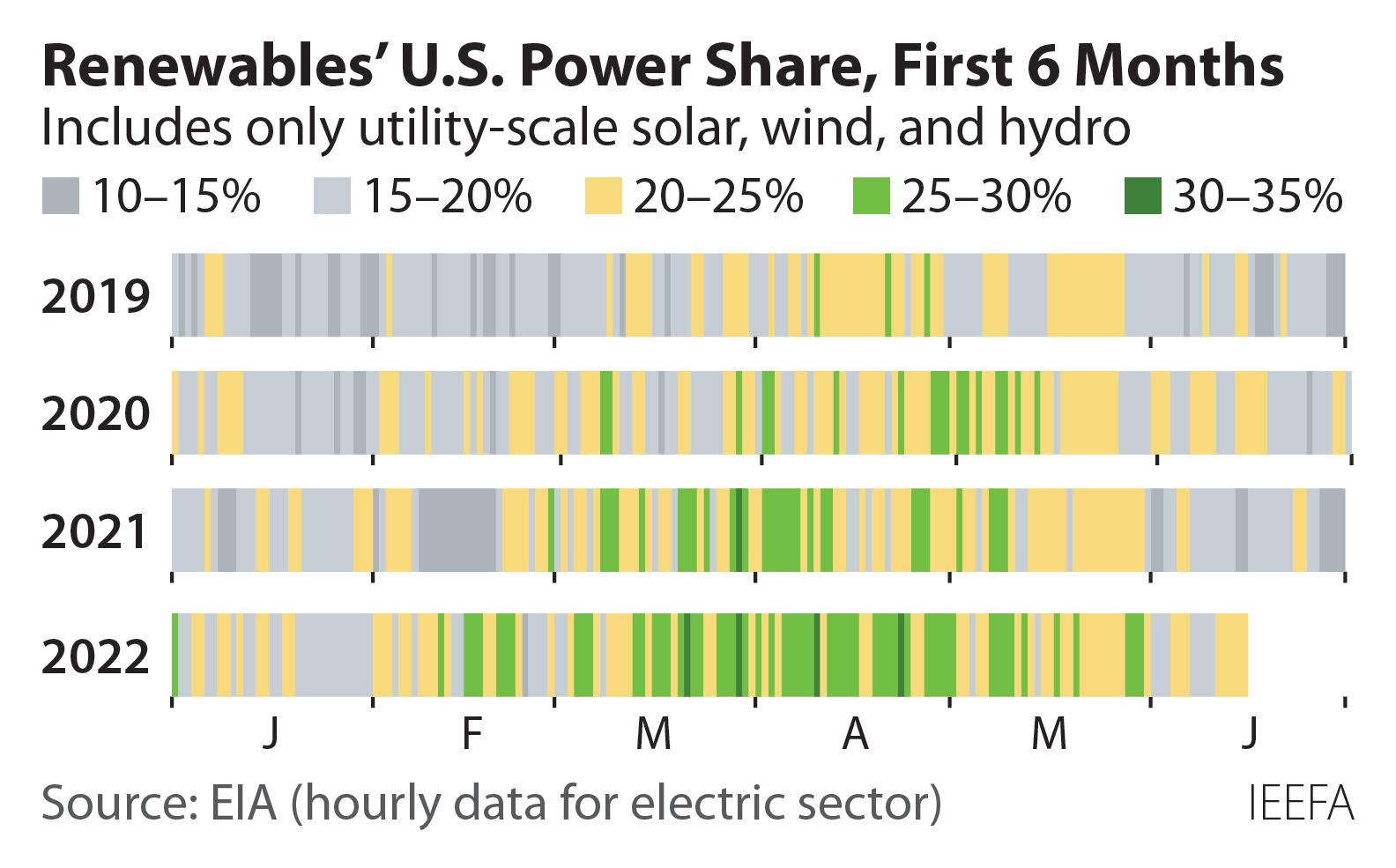
It's not just power generation. Bloomberg says EV sales have crossed the 5% tipping point in America, and is now predicting a quarter of all new cars will be electric by 2025, several years earlier than expected. Reminder: transportation is responsible for more emissions than electricity in the US.
And guess which states have had the highest EV growth since 2014?? California and New York aren't even in the top five. Leading the pack is Mississippi, followed by Hawaii, Utah, Maryland and Wyoming. Climate change might be partisan, but buying a better car is as American as apple pie. Deseret
That's why the car companies aren't waiting around for the politicians to get their act into gear. Ford just cut 8,000 jobs from its ICE operations to fund further investments into EVs, and says it's on track to hit annual EV production of 600,000 by 2023, and over two million by 2026. "We are putting the industrial system in place to scale quickly."
And finally, remember that America only accounts for around 13% of global emissions. The failure of Build Back Better has received endless coverage in English language media - unlike China's announcement of 570GW of wind and solar in its latest Five Year Plan. That's 10X Africa, 1X Asia (excluding China) 1X the EU, 1X North America and 2X South America... all by 2025. Carbon Brief
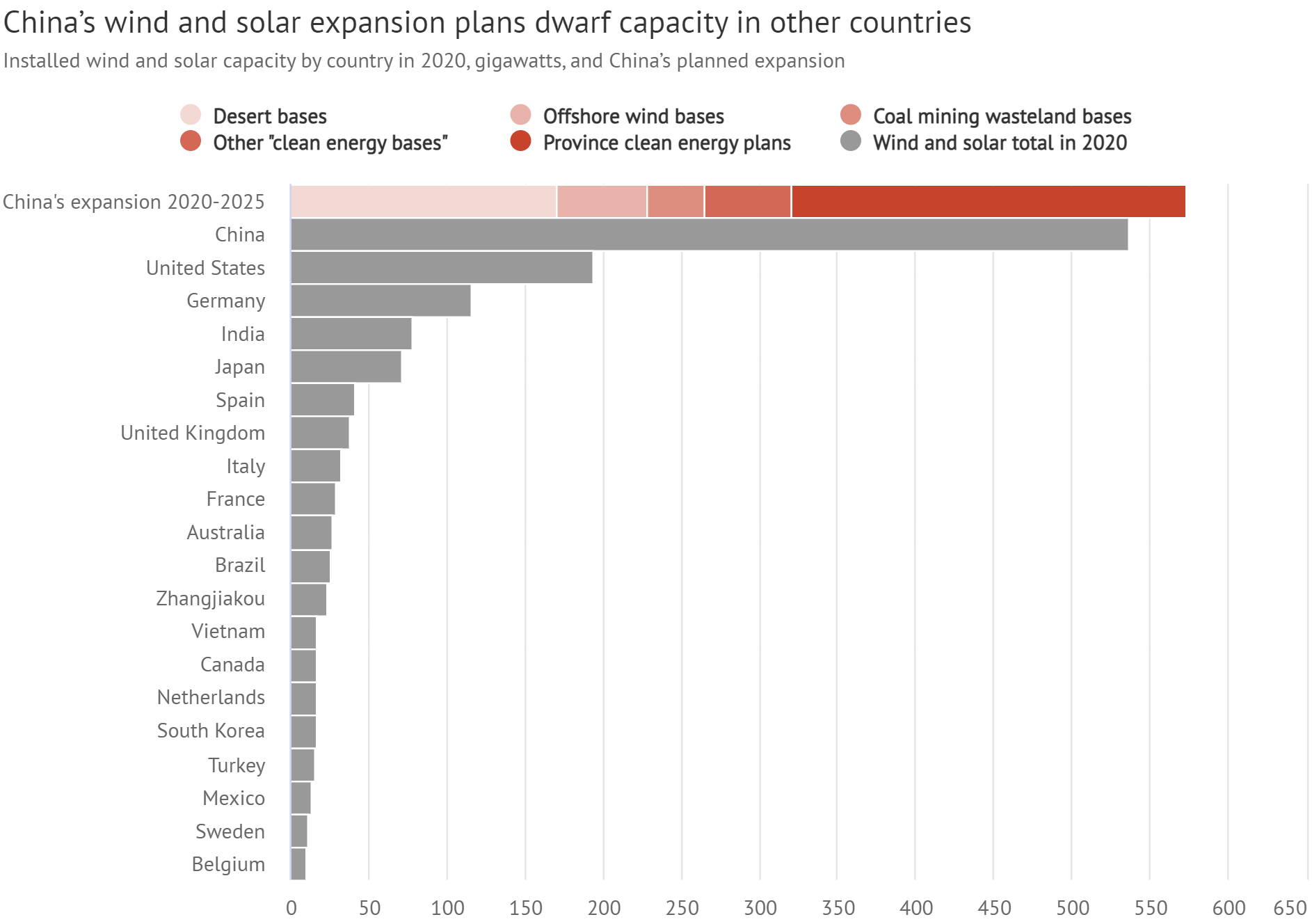
Did you hear about the £15 billion of new offshore wind farms announced at record-low power prices in the UK? Unless you're on Energy Twitter, then probably not. Here are some highlights:
- 11GW of renewables, in the government's biggest ever round of its flagship renewables auction scheme.
- 7GW of offshore wind, 2.2GW of solar, around 1GW of onshore wind, and for the first time ever, successful bids for tidal stream and floating offshore wind.
- A total of 93 projects across England, Scotland and Wales - more than in all three previous rounds combined.
- The newly awarded projects will generate around 42 TWh of electricity, roughly 13% of current UK demand, at prices four times below the current cost of gas.
- That's enough to power around 12 million British homes with clean, affordable, homegrown energy, helping to reduce exposure to volatile fossil fuel prices.
- All of it will be online by 2026/27 - around the same time as the Hinkley Point C nuclear reactor, which will generate electricity for two to three times the price. Carbon Brief
The IEA says high prices for natural gas and supply fears due to the war in Ukraine will slow growth in demand in the coming years. Global demand is now predicted to rise by 140 billion cubic meters between 2021 and 2025, less than half the increase of 370 bcm seen in the previous five-year period, which included the pandemic downturn. AP
In more 'Vladimir Putin, Climate Hero' news, the transformation of Europe's residential heating sector — the continent's largest source of gas consumption — is accelerating. More and more countries are introducing end dates. "Every gas boiler we get rid of is another step out of dependency on Russian gas," SP Global
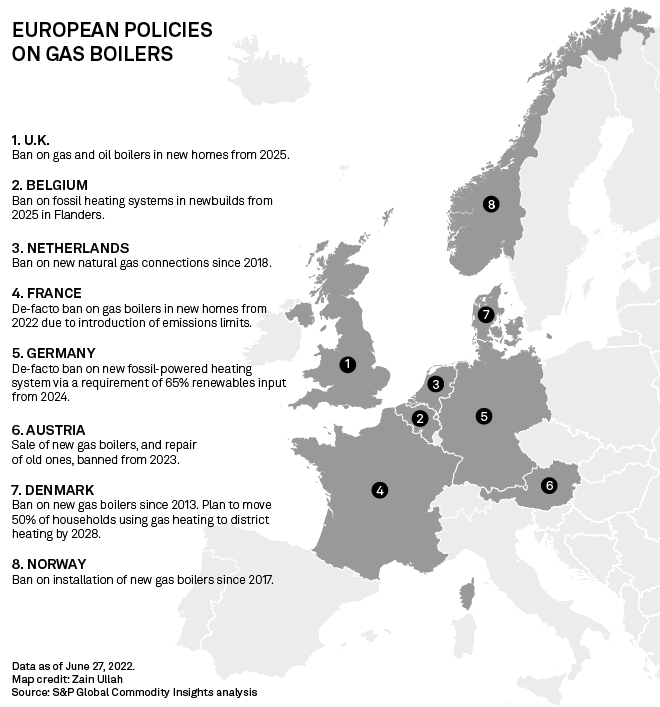
The Romanian government has published an emergency law to phase out coal by 2030, which is expected to be approved within a month. It accelerates the country’s original coal exit by two years, and clears the way for the country to exploit its enormous solar and wind energy potential. Beyond Coal
Only two countries in Africa are now building coal plants – Zimbabwe and South Africa – and the pipeline of new capacity is collapsing after China's pledge to end overseas support. Meanwhile, wind and solar are already the cheapest way to generate electricity across almost every part of the continent. IEA
The AFT is the second largest teacher's union in the US, with 1.7 million members, whose combined pensions are worth $5.8 trillion, as large as the federal budget. $255 billion used to be invested in fossil fuel corporations, until this week.
Two weeks ago, 35 faith institutions in Belgium, Brazil, Canada, Ireland, Italy, the UK and the US announced they were divesting from fossil fuels. That was quickly followed by the news that the 1.7 million United Presbyterians had voted to divest from the five big oil companies. Religion News
The only home we've ever known
Colombia has become the first country in the western hemisphere to protect 30% of its ocean, with fishing and oil exploration banned in four protected marine areas. The country recently joined forces with the US, Mexico, Chile, Peru, Ecuador, Canada, Panama and Costa Rica to collaborate and work faster to protect ocean areas. Axios
In a landmark decision, the EU has banned the imports of crops using two bee-killing, neonicotinoid pesticides. The ban follows a report from the EFSA identifying 'high acute risk' to honeybees from certain neonicotinoid chemicals and the moratorium will commence before December this year. Eco Watch
Disruptions to food supply chains in Mexico City during the pandemic resulted in a revival of Aztec-era island farms known as 'chinampas.' The shallow lake farms produce beans, corn, squashes, and greens, and when lockdowns stopped produce flows to the city, customers reconnected with local chinamperos, rebooting a 1,300 year-old agricultural legacy. Nat Geo
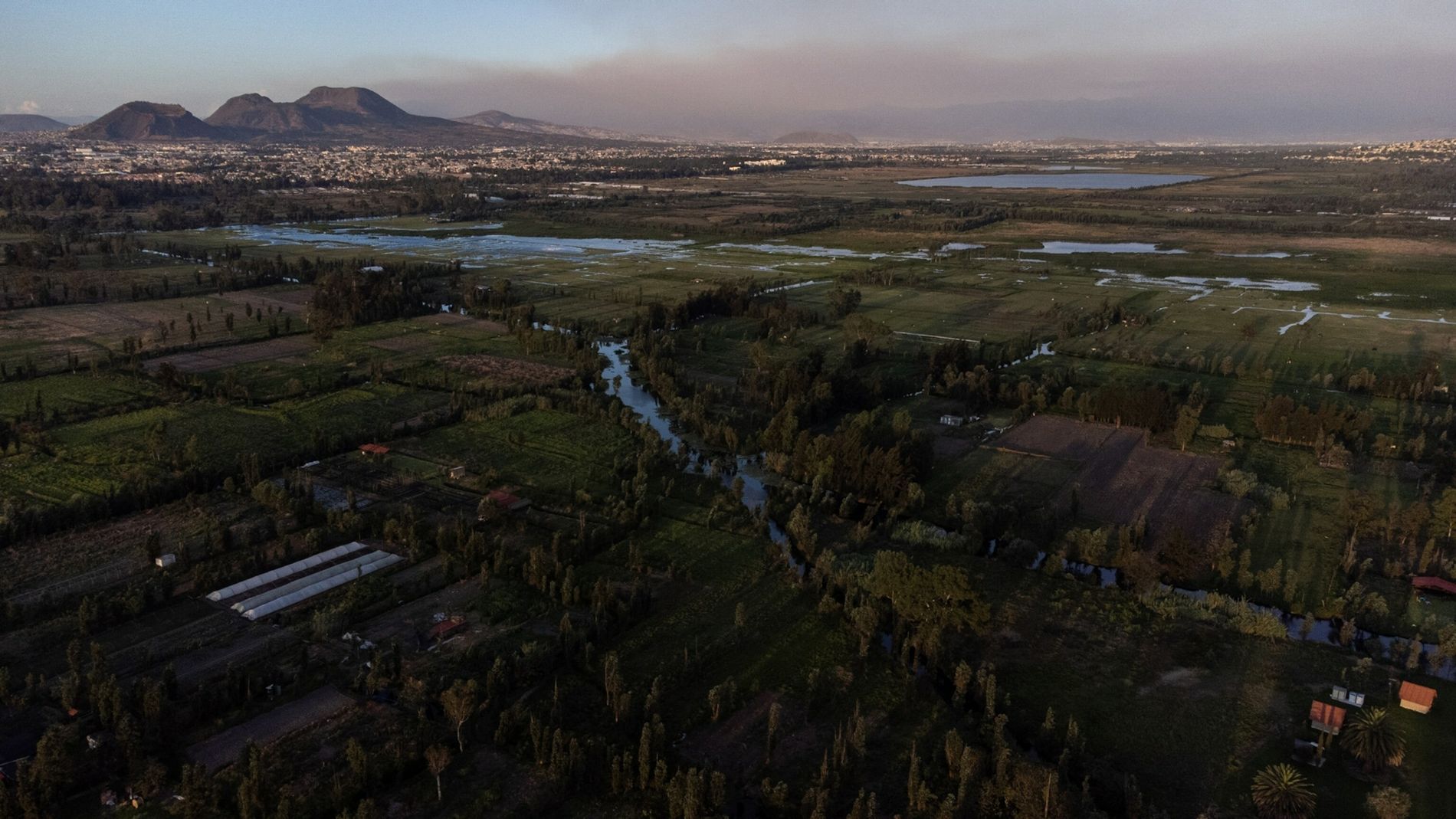
Indigenous peoples in Colombia’s Amazon are closer to self-governance after a court ordered the registration of 14 indigenous territorial entity (ITE) applications. The creation of the ITEs will allow communities to self-govern and ensure the protection of up to 10 million hectares of native forest. The first three ITEs are expected to be formalised by early 2023. Mongabay
The Amazon exists as it is because of Indigenous peoples, and their knowledge. They are not part of the solution just because they have forests. They are part of the solution because they know how the Amazon has to be governed, understood and managed.
Juan Carlos Preciado, Legal Counsel, Gaia Amazonas
A reforestation program in Burundi is restoring communities as well as nature with formerly warring factions working together to help boost the country’s forests. The initiative launched in 2018 after a brutal civil war, and in just four years has planted 150 million trees across 50,000 hectares. Mongabay
A federal judge in Northern California has restored a large number of protections for endangered and threatened species that were removed by the Trump administration. Environmental groups have applauded the move which will speed up protections and critical habitat designations for threatened species, including salmon in the Pacific Northwest. AP
38,052 acres of private timberlands in Montana have become part of the Lost Trail Conservation Area. The easement is a critical puzzle piece in the Lost Trail project, that will protect 100,000 acres of ecologically rich habitat, critical for grizzly bears and Canada lynx. Flat Head Beacon
Indigenous tribes across America have brought bison populations back from the brink of extinction over the last decade. Today 76 tribes across 20 states manage more than 20,000 bison - an incredible achievement considering the population sat below 1,000 in the early 1900s. It's also a victory for local ecosystems, with a flourishing of native grasses, animals, and insects wherever they roam. WaPo
As we look to the future, any assistance or effort that tribes are making to restore buffalo back to their lands is going to be beneficial for everybody, because it is a climate-smart, holistic idea of the relationship with nature.
Troy Heinert, Executive Director of the InterTribal Buffalo Council
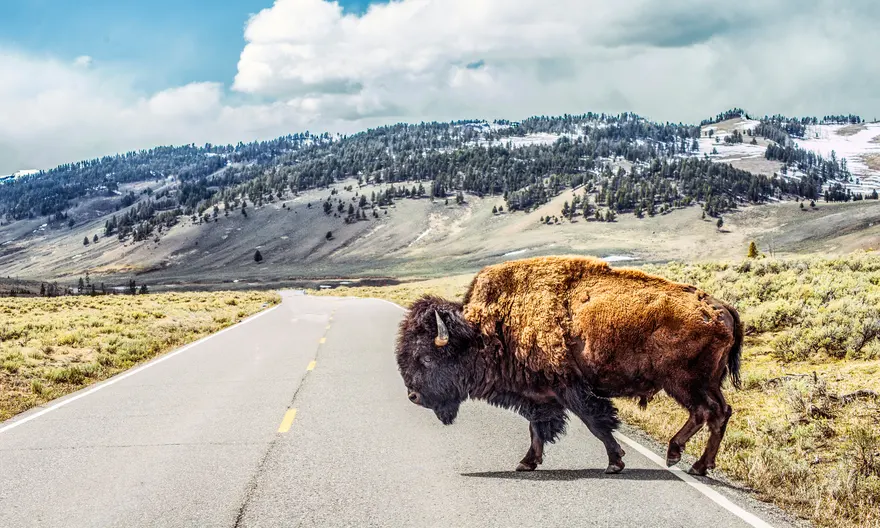
The population of Atlantic cod is showing signs of a comeback thanks to strict catch limits imposed in New England, where the fish was central to building the region’s economy. The 'class of ‘2019' includes at least a million young fish - with three or four more like it, cod could follow in the steps of haddock, a close relative, which recovered 15 years ago. The Public's Radio
Over the past ten years the Mikoko Pamoja project in Kenya has conserved over 100 hectares of mangroves and planted an additional 4,000 new mangroves along the coastline each year. The project has led to an increase in local livelihoods and inspired similar efforts in Mozambique Madagascar, Gambia, and Senegal. AP
ver the past 20 years global tree cover has increased by 130.9 million hectares - an area larger than Peru. 36 countries are now gaining more trees than they’re losing, including Ireland, Poland, Denmark, the Netherlands, Bangladesh, India, and Pakistan. WRI
An ecological revolution in Wellington, New Zealand is underway, as the return of native bird species, and close encounters with orca and whales fuel a volunteer conservation movement. The city is seeing an explosion in wildlife thanks to the presence of Zealandia, the world’s first fully fenced urban ecosanctuary located 10 minutes from downtown. Bloomberg
Louisiana has banned the ninth US state to ban the sale of any cosmetics tested on animals. It follows the lead of California, Nevada, Illinois, Virginia, Maryland, Maine, Hawaii, and New Jersey where similar bans are already in place. Humane Society
Over 200 kilometres of rivers and streams in northern New Mexico have the state’s highest water quality protections to safeguard waterways from anything that harms water quality, pollutes, drops heavy metals, increases temperature, or clouds water. Source NM
After a 200 year absence, the Mitchell’s hopping mouse has returned to Australia, with scientists hoping to bolster the population from 150 mice in a protected area that is cat and fox free. It’s part of a state-wide project to return the wild populations of more than 20 locally extinct species that suffered from habitat loss and feral animals. SMH
40 years after being declared locally extinct, rhinos are once again roaming the bush in Mozambique thanks to a translocation effort from South Africa. The black and white rhinos are being transported over 1,610 km to Zinave National Park, already home to more than 2,300 other reintroduced animals. Reuters
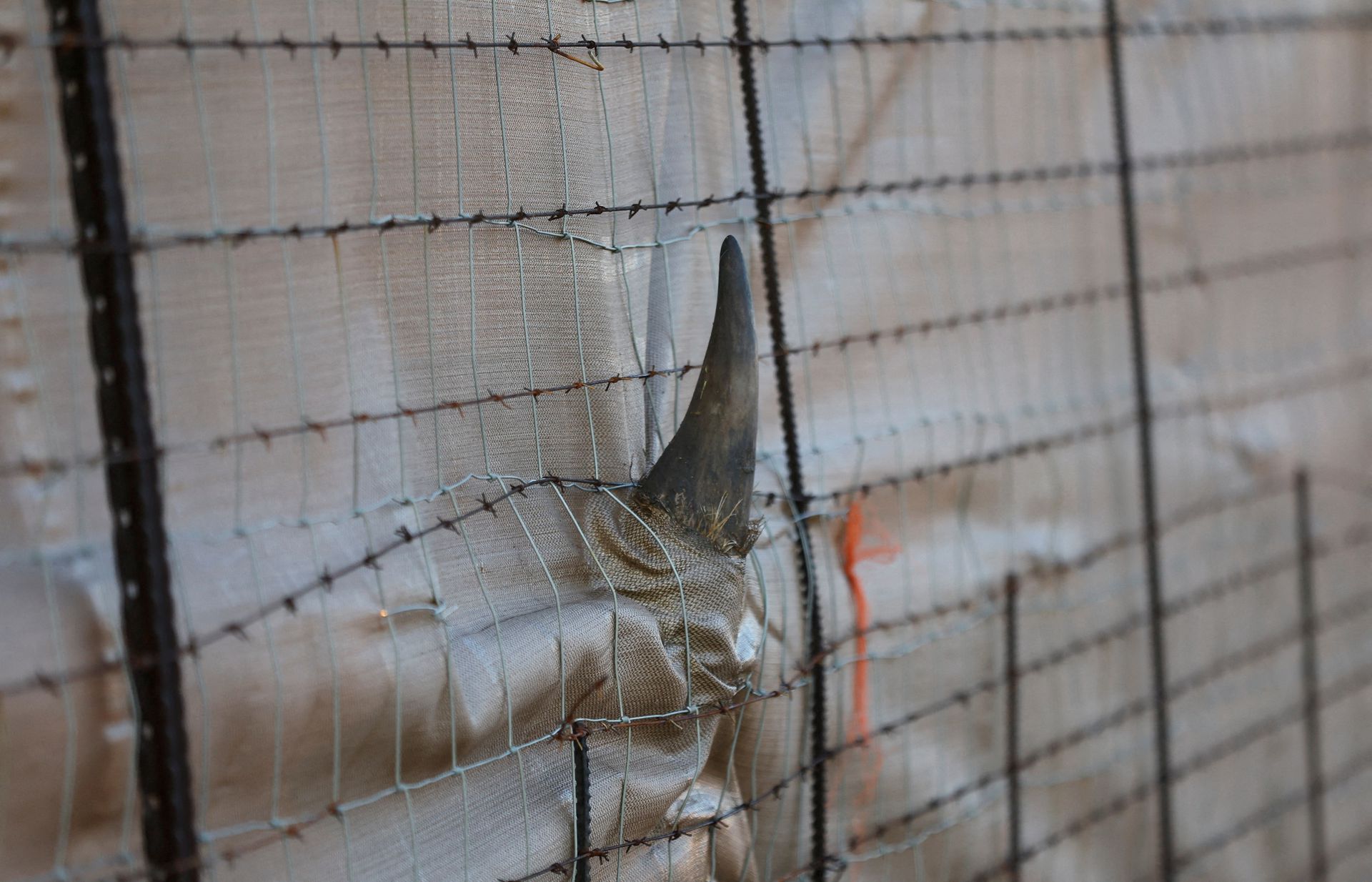
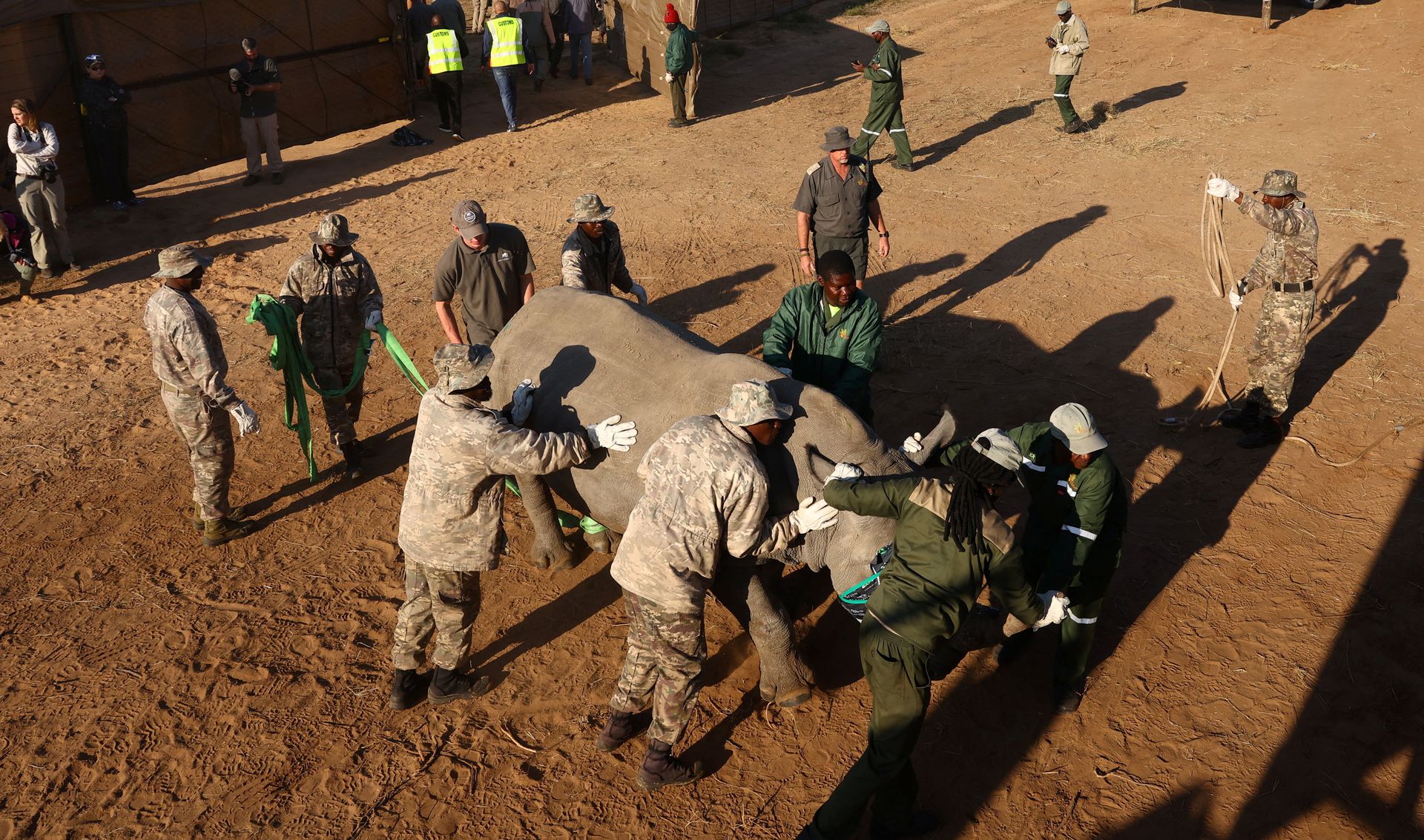
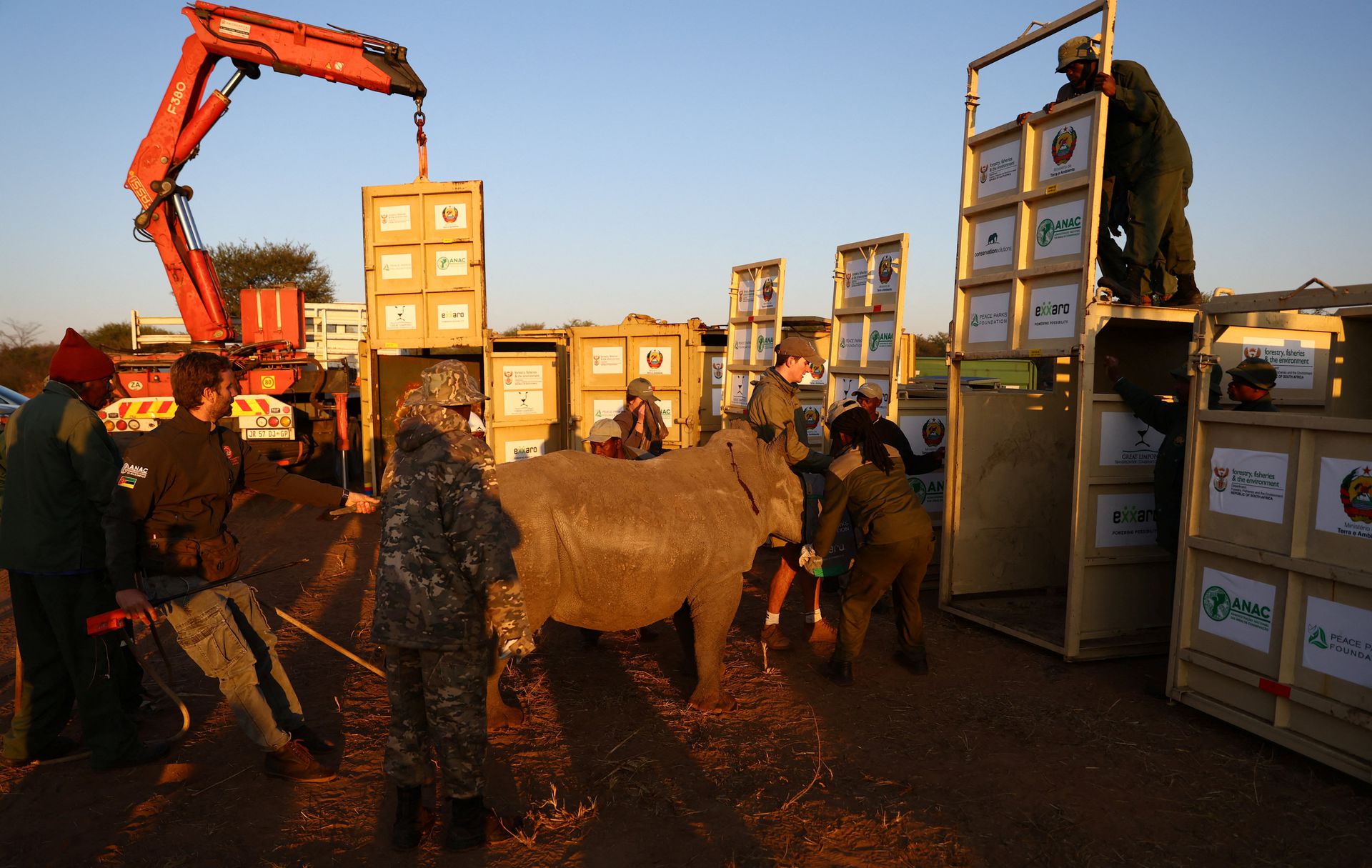
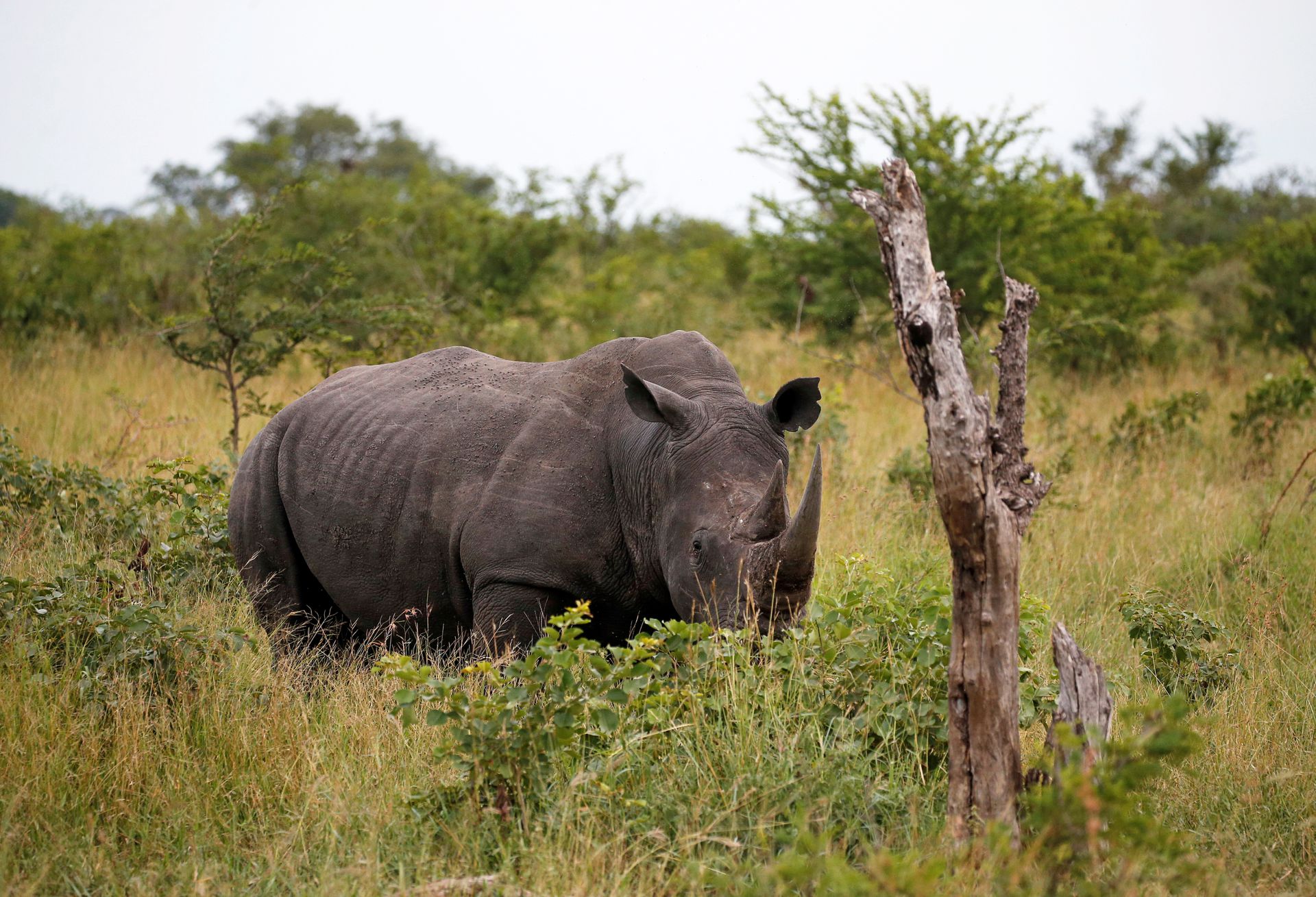
Thanks for reading! We'll see you in a fortnight.
Much love,
FC HQ






